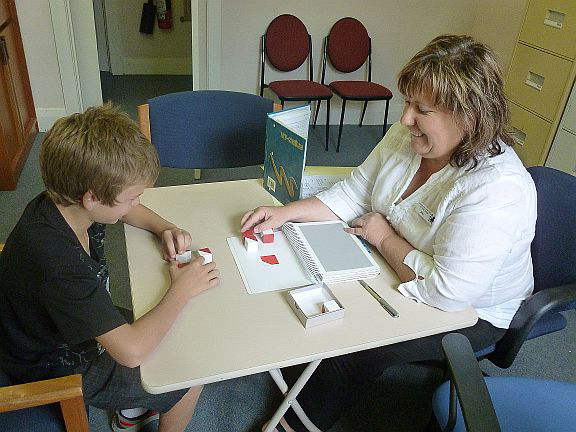
Psychological testing is usually conducted every 3 years by school systems. Parents have the right to request that the testing be performed by a designated testing specialist (outside of the school system). It is important for parents to ask what test batteries the school specialist intends to use, as not every test is appropriate for students with Williams syndrome.
Test selection must be carefully done, keeping the child's specific overall functioning in mind in order to be able to obtain as valid an assessment as possible. Further, interpretation of test results must be done carefully with close attention to validity.
In general, when testing any young child the following considerations are key:
- The purpose for testing should be clear and will guide test selection (common purposes include helping to determine learning style; as part of establishing educational goals; as part of understanding why some activities may be hard for the child; or as part of developing accommodations for the child.)
- The testing process for young children can be challenging and issues such as their attention span and their understanding of what they are being asked to do are especially important. Testing results are of course only as valid as the process of testing. If a child is unable to attend sufficiently to demonstrate their abilities, or is unable to understand the directions for testing, results are not likely to be valid. Sometimes for young children one is able to obtain some valid testing but not all of the testing may be valid. This can provide some useful information and a baseline for comparison for later testing as the child matures.
- Care in testing interpretation is especially important. Often children with WS show significant scatter in their abilities across domains, and hence close attention to subtest performance generally yields helpful information while averaging subtests that are substantially divergent becomes less meaningful.
- Depending on the purposes for testing/the questions being asked, testing results should be interpreted in the context of other ‘data points’ regarding a child’s functioning, including observation of the child across settings (e.g. home and school when possible), and measures of the child’s day to day functioning such as the Vineland Adaptive Behavior Scales with teacher and family being interviewed. Sometimes measures of the child’s temperament (e.g. emotional/behavioral functioning) can also be useful - again with both teachers and parents interviewed.
Test results alone are almost never sufficient to make major decisions such as classroom placement, as factors such as the child’s social, emotional, attention issues and school and family ‘culture’ are generally also important factors to consider.
